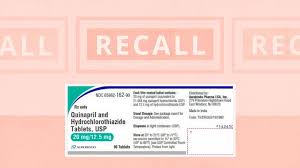
Introduction
Drug recalls are a critical aspect of public health safety, ensuring that potentially harmful medications are quickly removed from the market. As consumers, understanding drug recalls, the reasons behind them, and their implications is essential. Recent events have highlighted the importance of regulatory vigilance and consumer awareness in maintaining drug safety.
Recent Drug Recalls
In 2023, the U.S. Food and Drug Administration (FDA) reported over 200 drug recalls, with varying levels of risk to consumers. Most recently, a major recall involved blood pressure medications containing valsartan due to contamination with impurities linked to increased cancer risk. Such recalls not only affect patients dependent on these medications but also promote apprehension about the safety of prescribed drugs.
In another case, the FDA recalled children’s medications containing the active ingredient diphenhydramine due to labeling errors that could lead to improper dosages. These kinds of recalls further emphasize the necessity for precise communication and transparency between pharmaceutical manufacturers and healthcare providers.
The Recall Process
The drug recall process generally follows a standard protocol. In instances of potential health risks, drug manufacturers are required to notify the FDA and take appropriate actions, which may include withdrawing the product from the market, issuing public advisories, and providing consumers with information on how to deal with the recalled product. The FDA categorizes recalls into three classes: Class I (serious health risk), Class II (temporary health risk), and Class III (minimal risk).
Conclusion and Implications for Consumers
Staying informed about drug recalls is crucial for consumers and healthcare professionals alike. Regular updates from the FDA and Health Canada are essential tools for monitoring drug safety. As drug recalls can have severe implications for patient health and safety, increased awareness and prompt communication can mitigate risks. Consumers are encouraged to consult their healthcare providers if they have concerns about recalled medications and participate actively in discussions about their treatment options.
With the growing complexity of pharmaceutical products, bolstered vigilance and readiness to act swiftly can significantly improve outcomes. As regulations evolve, it remains crucial for both manufacturers and healthcare providers to prioritize drug safety and maintain open lines of communication with patients.



